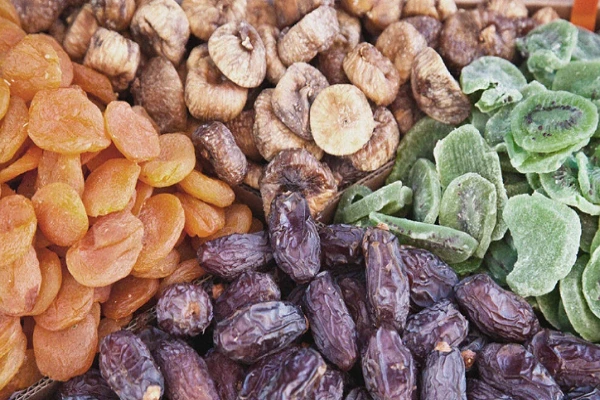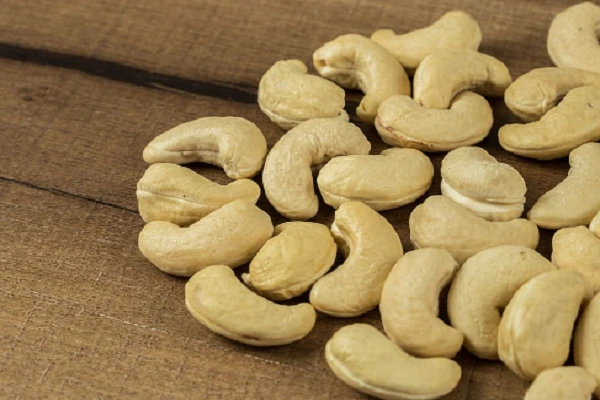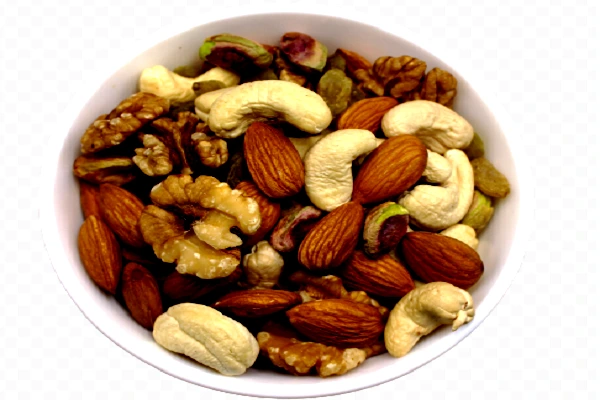Introduction
Age-related memory loss is a common problem that affects many people as they age. Recent research has suggested that a deficiency in dietary flavanols may be a contributing factor to this memory loss. Flavanols are a type of antioxidant found in certain fruits and vegetables, and they have been linked to improved cognitive function and memory. This article will discuss the potential role of dietary flavanols in age-related memory loss, and how increasing flavanol intake may help to reduce the effects of memory loss.

How Flavanols Can Help Protect Against Age-Related Memory Loss
Age-related memory loss is a common problem that affects many people as they age. Fortunately, recent research has shown that flavanols, a type of antioxidant found in certain fruits and vegetables, may help protect against age-related memory loss.
Flavanols are a type of antioxidant found in many fruits and vegetables, including apples, grapes, onions, and tea. They are also found in cocoa and dark chocolate. Flavanols are known to have a variety of health benefits, including reducing inflammation, improving blood flow, and protecting against oxidative stress.
Recent research has shown that flavanols may also help protect against age-related memory loss. In one study, researchers found that older adults who consumed a diet high in flavanols had better memory and cognitive performance than those who consumed a diet low in flavanols. The researchers concluded that flavanols may help protect against age-related memory loss by improving blood flow to the brain and reducing inflammation.
In addition to consuming a diet high in flavanols, there are other lifestyle changes that can help protect against age-related memory loss. These include getting regular exercise, getting enough sleep, and engaging in mentally stimulating activities.
In conclusion, flavanols may help protect against age-related memory loss. To get the most benefit, it is important to consume a diet high in flavanols and to make other lifestyle changes that can help protect against age-related memory loss.
The Role of Diet in Preventing Memory Loss as We Age
As we age, memory loss is a common concern. Fortunately, there are steps we can take to help prevent memory loss. One of the most important steps is to maintain a healthy diet. Eating a balanced diet that is rich in essential nutrients can help to protect our brains and keep our memories sharp.
A diet that is rich in antioxidants is especially beneficial for memory. Antioxidants help to protect our cells from damage caused by free radicals, which can lead to memory loss. Foods that are high in antioxidants include fruits and vegetables, nuts and seeds, and whole grains. Eating a variety of these foods can help to ensure that we are getting the antioxidants we need.
In addition to antioxidants, omega-3 fatty acids are also important for memory. Omega-3 fatty acids are found in fatty fish, such as salmon, mackerel, and sardines, as well as in walnuts, flaxseeds, and chia seeds. Eating these foods regularly can help to keep our brains healthy and our memories sharp.
It is also important to limit our intake of unhealthy foods, such as processed foods, fried foods, and sugary snacks. These foods can increase inflammation in the body, which can lead to memory loss. Eating a diet that is low in unhealthy foods and high in healthy foods can help to protect our brains and keep our memories sharp.
Finally, it is important to stay hydrated. Drinking plenty of water can help to keep our brains functioning optimally and can help to prevent memory loss.
In conclusion, eating a healthy diet that is rich in essential nutrients can help to protect our brains and keep our memories sharp. Eating a variety of fruits and vegetables, nuts and seeds, and whole grains can provide us with the antioxidants and omega-3 fatty acids we need to keep our brains healthy. Limiting our intake of unhealthy foods and staying hydrated can also help to protect our brains and keep our memories sharp. By following these simple steps, we can help to prevent memory loss as we age.

The Benefits of Eating Foods Rich in Flavanols for Memory Preservation
Flavanols are a type of antioxidant found in certain plant-based foods, such as cocoa, tea, and apples. Studies have shown that consuming foods rich in flavanols can have a positive effect on memory preservation. This article will discuss the benefits of eating foods rich in flavanols for memory preservation.
First, flavanols have been found to improve cognitive performance. Studies have shown that consuming flavanols can improve memory, attention, and reaction time. This is due to the fact that flavanols can increase blood flow to the brain, which can improve cognitive performance. Additionally, flavanols can reduce inflammation in the brain, which can help protect against age-related cognitive decline.
Second, flavanols can help protect against age-related memory loss. Studies have shown that consuming flavanols can help protect against age-related memory loss by reducing inflammation in the brain and increasing blood flow to the brain. Additionally, flavanols can help protect against oxidative stress, which can damage brain cells and lead to memory loss.
Finally, flavanols can help protect against Alzheimer’s disease. Studies have shown that consuming flavanols can help protect against Alzheimer’s disease by reducing inflammation in the brain and increasing blood flow to the brain. Additionally, flavanols can help protect against oxidative stress, which can damage brain cells and lead to Alzheimer’s disease.
In conclusion, consuming foods rich in flavanols can have a positive effect on memory preservation. Flavanols can improve cognitive performance, protect against age-related memory loss, and protect against Alzheimer’s disease. Therefore, it is important to include foods rich in flavanols in your diet in order to preserve your memory.
Understanding the Link Between Flavanols and Memory Loss
Flavanols are a type of antioxidant found in certain fruits and vegetables, such as apples, onions, and tea. Recent research has suggested that flavanols may play a role in reducing the risk of memory loss.
Studies have shown that flavanols can help protect the brain from oxidative stress, which is a major contributor to age-related memory decline. Oxidative stress occurs when the body is exposed to too many free radicals, which are molecules that can damage cells and tissues. Flavanols are thought to reduce oxidative stress by neutralizing free radicals and preventing them from causing damage.
In addition, flavanols have been found to increase the production of a protein called brain-derived neurotrophic factor (BDNF). BDNF is important for maintaining healthy brain cells and promoting the growth of new neurons. Studies have shown that people with higher levels of BDNF are less likely to experience age-related memory decline.
Flavanols have also been found to improve blood flow to the brain, which is important for maintaining cognitive function. Studies have shown that people who consume flavanols on a regular basis have better blood flow to the brain than those who do not.
Finally, flavanols have been found to reduce inflammation in the brain, which is another factor that can contribute to memory loss. Studies have shown that people who consume flavanols on a regular basis have lower levels of inflammation in the brain than those who do not.
Overall, the research suggests that flavanols may play an important role in reducing the risk of memory loss. While more research is needed to confirm these findings, it is clear that flavanols can have a positive effect on cognitive health. Therefore, it is important to include flavanols in your diet in order to maintain a healthy brain and reduce the risk of memory loss.

How to Incorporate Flavanols Into Your Diet to Reduce Memory Loss
Memory loss is a common problem that can affect people of all ages. Fortunately, there are steps you can take to reduce the risk of memory loss. One of the most effective ways to do this is to incorporate flavanols into your diet.
Flavanols are a type of antioxidant found in certain fruits, vegetables, and beverages. They are known to have a variety of health benefits, including reducing the risk of memory loss. Here are some tips for incorporating flavanols into your diet:
1. Eat more fruits and vegetables. Fruits and vegetables are rich sources of flavanols. Try to include a variety of fruits and vegetables in your diet, such as apples, oranges, berries, spinach, kale, and broccoli.
2. Drink green tea. Green tea is a great source of flavanols. Try to drink at least one cup of green tea per day.
3. Eat dark chocolate. Dark chocolate is a great source of flavanols. Try to eat at least one ounce of dark chocolate per day.
4. Add spices to your meals. Spices such as cinnamon, turmeric, and ginger are all rich sources of flavanols. Try to add these spices to your meals whenever possible.
By following these tips, you can easily incorporate flavanols into your diet and reduce your risk of memory loss. Remember to consult with your doctor before making any major changes to your diet.
The Impact of Flavanols on Cognitive Function and Memory
Flavanols are a type of plant-based compound found in a variety of foods, including cocoa, tea, and apples. Recent research has suggested that flavanols may have a positive impact on cognitive function and memory.
Studies have shown that flavanols can improve cognitive performance in both healthy individuals and those with mild cognitive impairment. In one study, healthy adults who consumed a high-flavanol cocoa drink for three months showed improved performance on tests of cognitive function and memory. In another study, elderly individuals with mild cognitive impairment who consumed a high-flavanol cocoa drink for eight weeks showed improved performance on tests of memory and attention.
Flavanols may also help protect against age-related cognitive decline. In a study of elderly individuals, those who consumed a high-flavanol cocoa drink for eight weeks showed improved performance on tests of memory and attention, as well as improved brain connectivity. This suggests that flavanols may help protect against age-related cognitive decline.
In addition to improving cognitive performance and memory, flavanols may also help protect against neurodegenerative diseases such as Alzheimer’s and Parkinson’s. Studies have shown that flavanols can reduce inflammation in the brain, which is a key factor in the development of these diseases.
Overall, the research suggests that flavanols may have a positive impact on cognitive function and memory. While more research is needed to fully understand the effects of flavanols on the brain, the current evidence suggests that consuming foods high in flavanols may be beneficial for cognitive health.
The Latest Research on Flavanols and Memory Loss
Recent research has suggested that flavanols, a type of antioxidant found in cocoa, tea, and certain fruits and vegetables, may help to reduce memory loss. Flavanols are believed to have a protective effect on the brain, and may help to reduce the risk of age-related cognitive decline.
A study conducted by the University of Reading in the United Kingdom found that participants who consumed a high-flavanol diet had better memory performance than those who consumed a low-flavanol diet. The study also found that the high-flavanol group had better performance on tests of executive function, which is the ability to plan, organize, and remember details.
In addition, a study conducted by the University of L’Aquila in Italy found that participants who consumed a high-flavanol diet had better performance on tests of verbal memory and visual memory than those who consumed a low-flavanol diet. The study also found that the high-flavanol group had better performance on tests of executive function.
These studies suggest that flavanols may help to reduce memory loss and improve cognitive performance. However, more research is needed to confirm these findings. Additionally, it is important to note that the effects of flavanols on memory loss may vary depending on the individual.
In conclusion, recent research suggests that flavanols may help to reduce memory loss and improve cognitive performance. However, more research is needed to confirm these findings. Additionally, it is important to note that the effects of flavanols on memory loss may vary depending on the individual.

Exploring the Benefits of Flavanol Supplements for Memory Loss Prevention
Memory loss is a common problem that affects many people as they age. While there is no cure for memory loss, there are ways to help prevent it. One such way is through the use of flavanol supplements. Flavanols are a type of antioxidant found in certain fruits and vegetables, and they have been found to have a positive effect on memory and cognitive function. In this article, we will explore the potential benefits of flavanol supplements for memory loss prevention.
Flavanols are a type of antioxidant that can help protect the brain from damage caused by free radicals. Free radicals are molecules that can damage cells and lead to inflammation, which can contribute to memory loss. Flavanols have been found to reduce inflammation and protect the brain from damage. They also help to improve blood flow to the brain, which can help improve cognitive function.
Studies have shown that flavanol supplements can help improve memory and cognitive function in both healthy individuals and those with memory loss. In one study, participants who took flavanol supplements for six months showed improved memory and cognitive function compared to those who did not take the supplements.
Flavanols have also been found to help protect the brain from age-related decline. In one study, participants who took flavanol supplements for six months showed improved memory and cognitive function compared to those who did not take the supplements. This suggests that flavanols may help protect the brain from age-related decline.
In addition to their potential benefits for memory loss prevention, flavanol supplements may also help reduce the risk of other age-related diseases. Studies have found that flavanols can help reduce the risk of stroke, heart disease, and diabetes. They may also help reduce inflammation, which can help protect against a variety of diseases.
Overall, flavanol supplements may offer a number of potential benefits for memory loss prevention. While more research is needed to confirm these findings, the current evidence suggests that flavanols may be a useful tool for protecting the brain from age-related decline and reducing the risk of other age-related diseases.
Q&A
1. What are dietary flavanols?
A: Dietary flavanols are a type of antioxidant found in certain fruits, vegetables, and beverages, such as tea, cocoa, and red wine. They are known to have a variety of health benefits, including reducing inflammation and improving cardiovascular health.
2. How can a deficiency in dietary flavanols increase age-related memory loss?
A: A deficiency in dietary flavanols can lead to an increase in oxidative stress, which can damage cells and lead to age-related memory loss. Oxidative stress is caused by an imbalance between the production of free radicals and the body’s ability to counteract their harmful effects.
3. What are the symptoms of age-related memory loss?
A: Symptoms of age-related memory loss can include difficulty remembering recent events, difficulty concentrating, and difficulty finding the right words.
4. What are some ways to increase dietary flavanols?
A: Some ways to increase dietary flavanols include eating more fruits and vegetables, drinking tea, and consuming cocoa and red wine in moderation.
5. Are there any risks associated with consuming too much dietary flavanols?
A: Consuming too much dietary flavanols can lead to an increased risk of certain health conditions, such as high blood pressure and heart disease. It is important to consume flavanols in moderation.
6. Are there any supplements available to help increase dietary flavanols?
A: Yes, there are supplements available that contain flavanols. However, it is important to speak with a healthcare professional before taking any supplements.
7. Are there any lifestyle changes that can help increase dietary flavanols?
A: Yes, making lifestyle changes such as eating a balanced diet, exercising regularly, and reducing stress can help increase dietary flavanols.
8. What other health benefits are associated with dietary flavanols?
A: Dietary flavanols are associated with a variety of health benefits, including reducing inflammation, improving cardiovascular health, and protecting against certain types of cancer.
Conclusion
In conclusion, a deficiency in dietary flavanols can increase age related memory loss. This is due to the fact that flavanols are important for maintaining healthy brain function and can help protect against age-related cognitive decline. Therefore, it is important to ensure that you are getting enough flavanols in your diet in order to maintain healthy brain function and reduce the risk of age-related memory loss.

